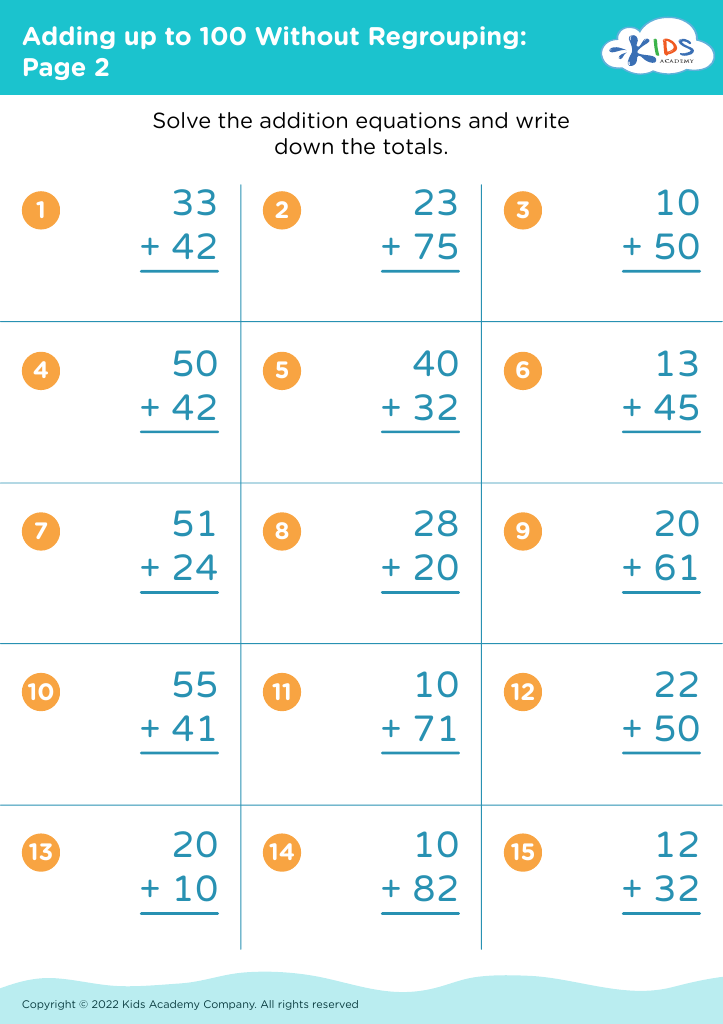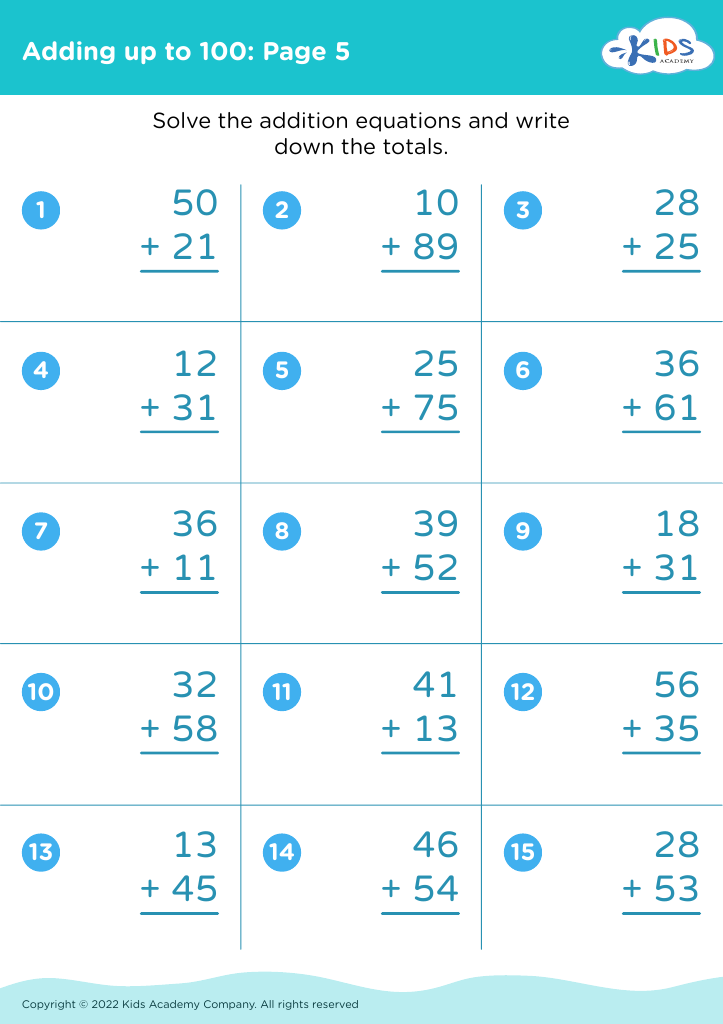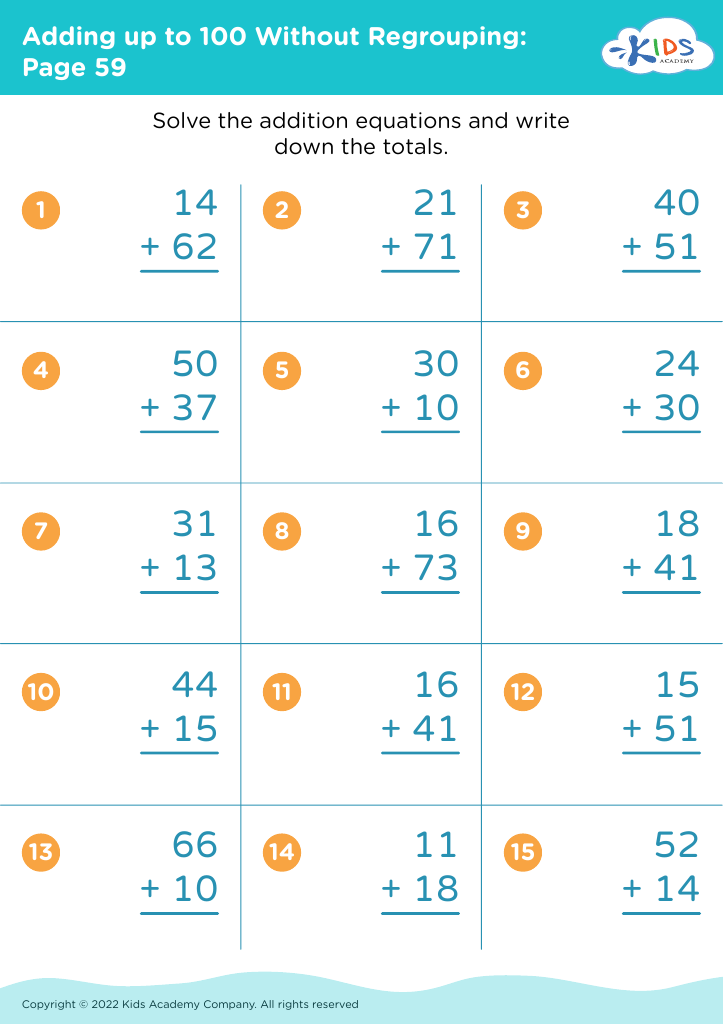Following instructions Adding up to 100 Worksheets for 7-Year-Olds
4 filtered results
-
From - To
Discover the perfect educational resource tailored for 7-year-olds—our "Following Instructions Adding up to 100 Worksheets". These engaging worksheets focus on enhancing your child's mathematical skills by challenging them to sum numbers up to 100. Packed with visually appealing exercises and clear instructions, these worksheets not only promote numerical proficiency but also hone listening and comprehension skills. Designed to make learning enjoyable and interactive, each worksheet aids in building foundational math abilities. Ideal for classroom use or extra practice at home, our worksheets ensure your child stays ahead by mastering both following instructions and the fundamental concept of addition.
Following instructions and adding up to 100 are foundational skills crucial for the cognitive and social development of 7-year-olds.
When children learn to follow instructions, they develop better listening skills, attention to detail, and the ability to execute tasks sequentially. This attention to guidance fosters a classroom environment conducive to effective learning and helps mitigate behavior issues. Being adept at following directions also prepares children for a future of teamwork and collaboration, necessary skills in both academic and personal spheres.
Adding up to 100 builds a child’s numerical fluency and foundational math skills, which are vital for their ongoing education. Proficiency in basic addition helps children grasp more complex mathematical concepts as they progress. Additionally, these math skills are used in everyday activities, such as understanding money, measurements, and time, laying down the essentials for autonomous living.
Therefore, parents and teachers should prioritize these skills to ensure children develop the cognitive capacities and social behaviors necessary for lifelong learning and success. By focusing on following instructions and mastering basic arithmetic, 7-year-olds can build the confidence and competence needed to approach future educational challenges enthusiastically and effectively. These skills form the bedrock upon which future academic and interpersonal successes are built.











%20(1).jpg)











